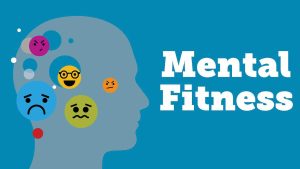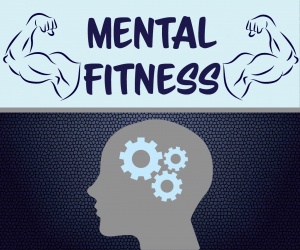Introduction
Modern life can make our minds feel scattered. We often juggle busy jobs, personal commitments, and constant notifications. This cycle can wear us down. Many of us think of fitness in terms of physical health, yet mental fitness is just as vital. Our brains need a consistent workout, too. Building Regular Habits that focus on the mind can sharpen focus, stabilize our mood, and promote stress reduction. If you are looking for ways to stay calm under pressure, daily brain workouts can be a game-changer.
What Is Mental Fitness?

Mental fitness is much like physical fitness. When you maintain your muscles, you get stronger and more capable. When you train your mind, you become more resilient. You can deal with unexpected problems more calmly. You also sharpen your ability to reason and remember. In essence, mental fitness includes the daily habits, thoughts, and coping skills that make your brain function at its best.
Why Is Mental Fitness Important for Stress Reduction?

Life can throw plenty of curveballs our way. Without a robust mental foundation, everyday tasks may feel overwhelming. Stress can stack up, leading to burnout, anxiety, or even physical illness. Stress management is easier when your mind is in shape. You recognize early signals of tension. You can use coping strategies before you feel overloaded.
Daily Exercises to Strengthen Focus and Reduce Stress

In the same way that a short daily walk can improve physical health, small mindfulness sessions can improve your emotional well-being. Repetition matters here. The mind benefits from steady practice, so let us look at some easy routines you can adopt.
Mindful Breathing
One of the simplest methods is to spend a few minutes focusing on your breath. Sit comfortably, close your eyes, and notice each inhale and exhale. If your thoughts drift, gently bring them back to your breathing. This simple routine can train you to center your thoughts and reduce stress. Over time, it reinforces your ability to calm racing thoughts in any setting.
Progressive Muscle Relaxation
Start at your toes and work your way up, tensing and then relaxing each muscle group. This step-by-step process helps the body recognize what tension feels like and how to let go of it. When you reach your head, you might sense a deeper release of stress throughout your entire body.
Focus Exercises
Pick a simple object, such as a pen or a small stone, and examine it. Take note of its shape, weight, and texture. By immersing your attention in that object for a short period, you train the mind to stay present. This technique can also improve concentration. Over time, you may notice you become less easily distracted in other parts of life.
Incorporating Brain Training into Your Routine

Many people hesitate to add something new to their busy day. They imagine complex rituals. Luckily, daily mental exercises do not need to take a lot of time. You can weave them into your morning, lunch break, or evening routine.
Some people do a brief mindfulness session when they first wake up. They stay in bed for a few minutes, focusing on their breath and setting an intention for the day. Others prefer a midday break. They might practice progressive muscle relaxation after lunch to refresh the mind for the afternoon. If you like to unwind before bed, journaling can help release any lingering worries.
Table: Simple Daily Mental Exercises at a Glance

Below is a brief look at helpful activities and how they support focus and stress management:
| Exercise | How It Helps | Time Needed |
|---|---|---|
| Mindful Breathing | Calms racing thoughts, improves awareness | 2-5 minutes any time of day |
| Visualization | Reduces stress, lifts mood through positive imagery | 2-3 minutes, can be repeated |
| Progressive Muscle Relaxation | Releases body tension, lowers anxiety | 5-7 minutes, guided or solo |
| Journaling | Clarifies worries, fosters self-reflection | 5-10 minutes, ideally at night |
| Focus Exercise (Object) | Strengthens attention, helps with distractibility | 2 minutes, repeat as needed |
This table can guide your daily plan. Pick one or two methods that suit your current mood. Rotate them for variety, or stick to the ones that give you the most benefit.
Aligning Mental Fitness with Physical Activity

Yoga is a classic example. It merges poses with breath control. This synergy supports stress management. It also boosts focus as you maintain balance and pay attention to how your body moves. Even a brisk walk can become a mindful experience. Notice how your feet touch the ground or how the air feels. By blending movement with awareness, you deepen the mind-body link.
When you combine mental training with physical habits, you can see progress more quickly. The body and mind support each other. Emotional resilience rises, and you gain a sense of balance that extends throughout the day.
Setting Realistic Goals

Adding daily mental exercises to your life should feel rewarding, not burdensome. Start small. If you attempt 30 minutes of meditation when you have no practice, it might seem overwhelming. Instead, try 2 minutes. If that feels too easy, nudge it to 5 minutes the next day. This gradual approach makes it more likely that you will keep going.
How Technology Can Support Mental Fitness
In our digital age, plenty of tools exist to aid mental fitness. Apps with guided meditations or mindfulness reminders can be a great starting point. They offer daily prompts so you do not forget your exercises. Some trackers let you log your mood or set up short breathing breaks. These nudges can help busy people stay consistent.
Music or nature soundtracks can also help you relax. If you find it tough to focus in a busy household, consider noise-cancelling headphones. A calm environment can enhance the effect of your mental exercises. Online groups or forums can also keep you motivated. Sharing tips with others who value stress reduction can lead to friendly support and new ideas.
Conclusion
A healthy mind shapes how we Manage Stress, solve problems, and interact with the world. Mental fitness ensures that the brain stays in good shape throughout life’s challenges. By weaving in short daily mental exercises, you create habits that lift your mood, support focus, and protect against burnout. Whether you prefer mindful breathing, visualization, or progressive muscle relaxation, consistency is what truly matters. Over time, these routines help you bounce back from tension more quickly. They also encourage a calm, balanced perspective. A little practice each day can yield remarkable long-term benefits.











